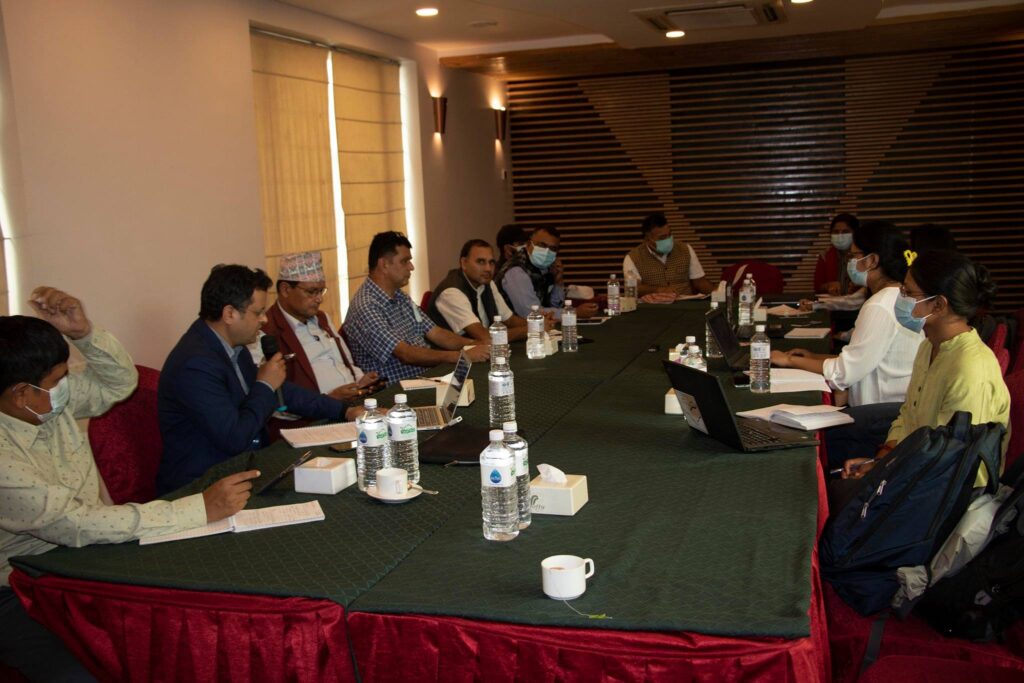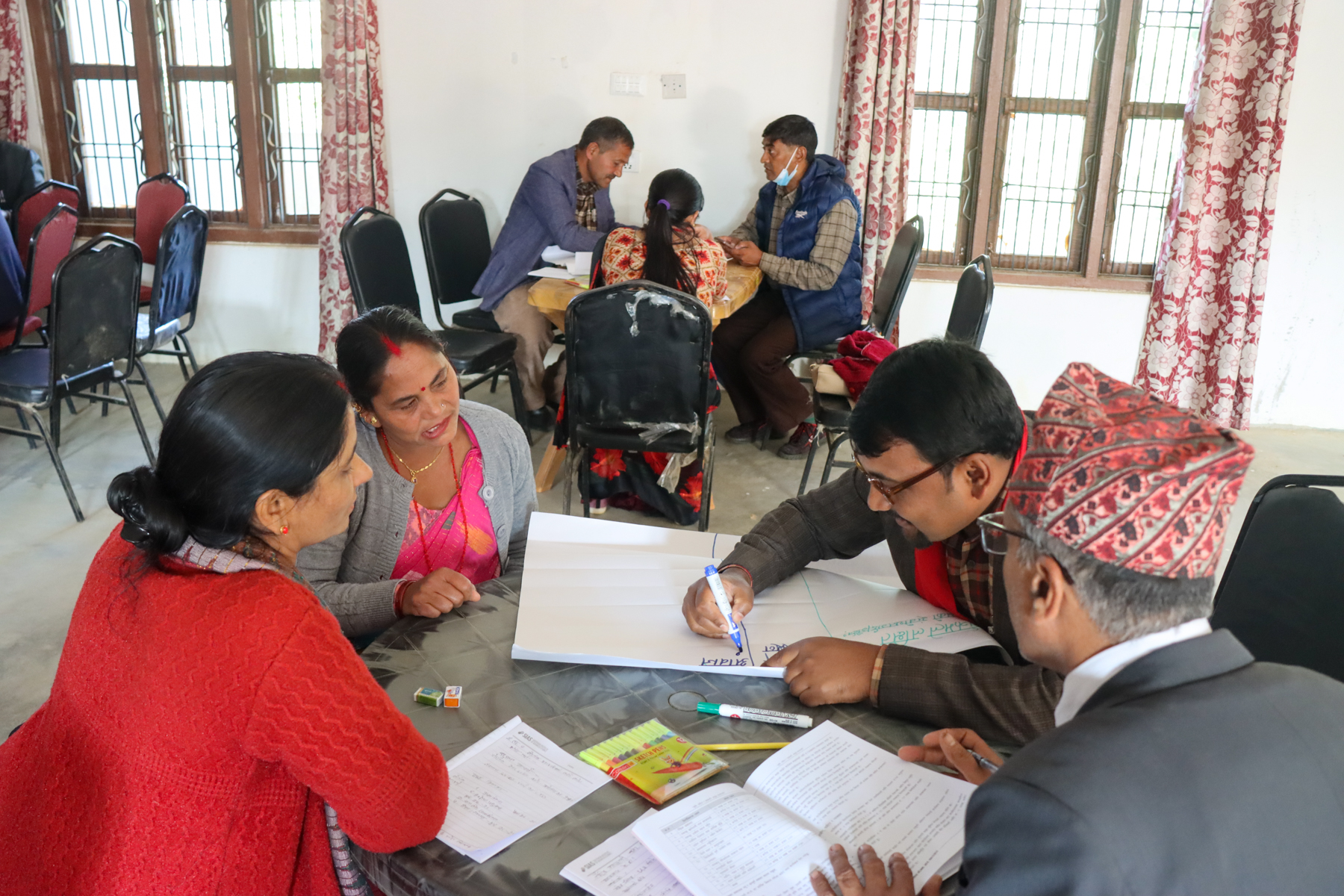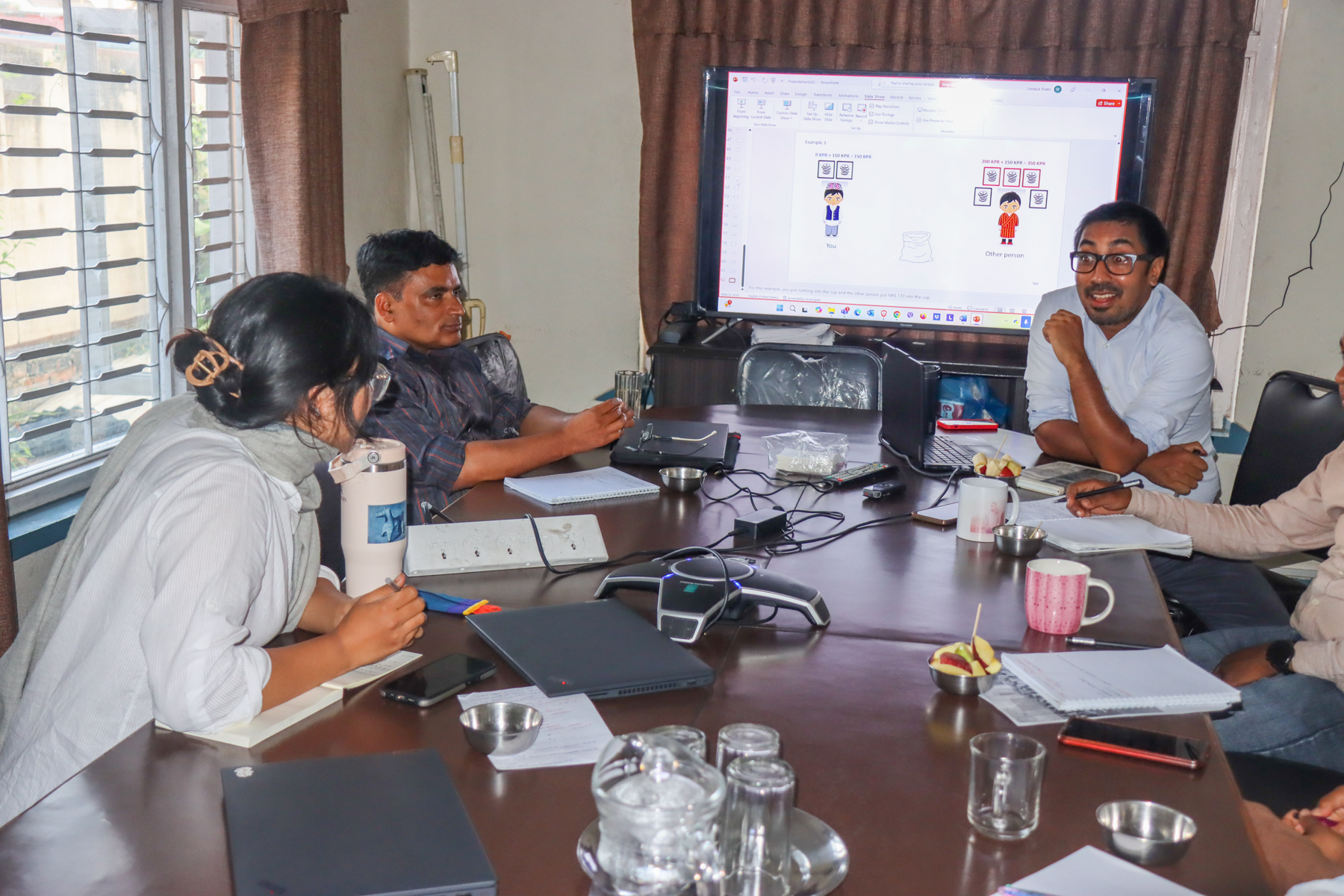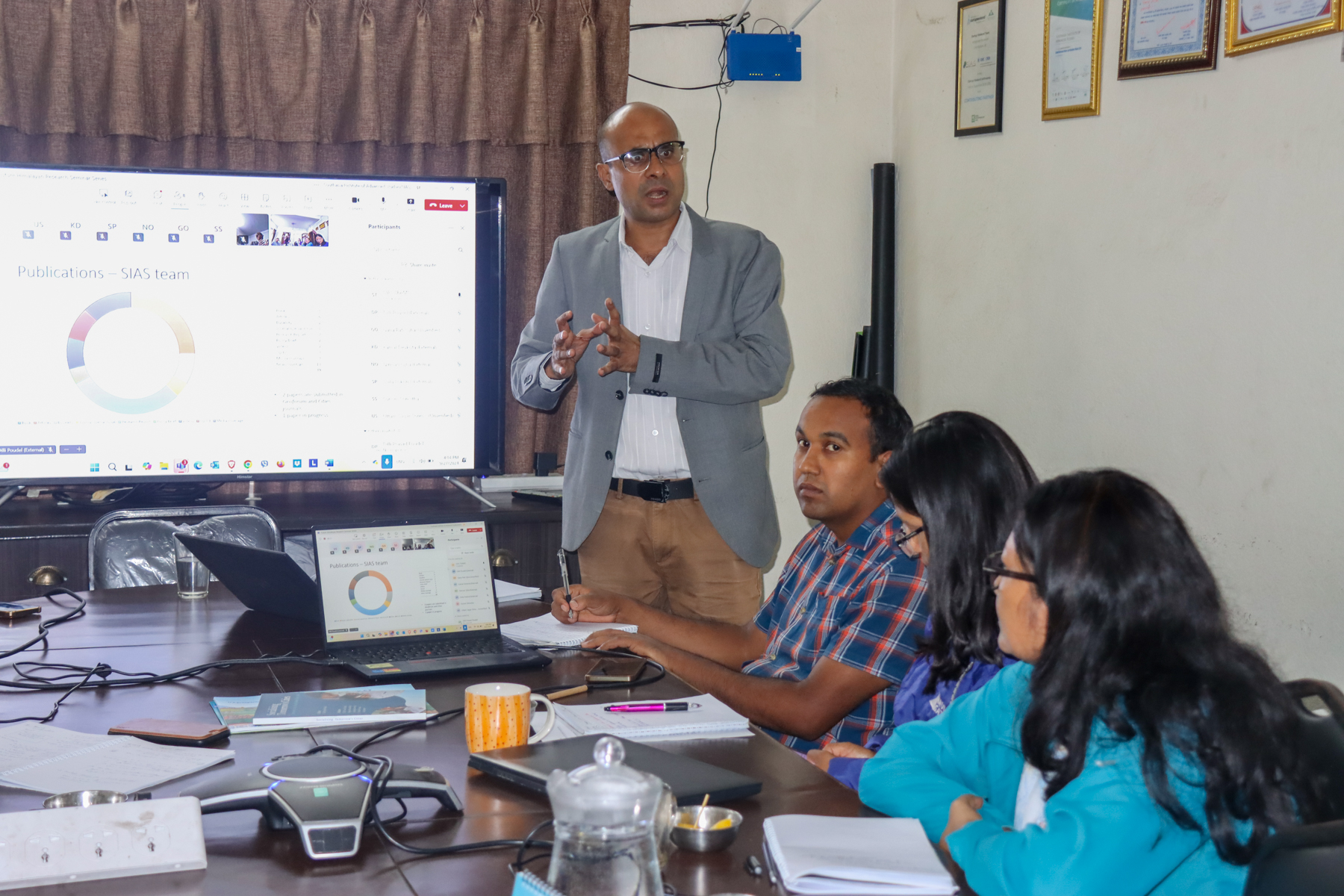
SIAS, Institute for Study and Development Worldwide (IFSD), and The University of Edinburgh jointly organized an expert meeting on “Urban water security in Nepal: Insights for policy and practices” on the 4th October 2021. Bringing together diverse actors including senior government officials, local government leaders, civil society representatives, and researchers, this event fostered evidence and experience-informed discussions on different aspects of urban water security in Nepal.
In the event, Dr. Anushiya Shrestha and Gyanu Maskey, Researchers at SIAS, presented findings, experiences and insights on water security. The presentation was based on several years of research and policy engagements at Dharan, Dhulikhel, Bidur and Diktel and a review of various water-related national policy documents. The presentation and the discussion focused on five key aspects of urban water security in the country: (i) rapid urbanization and conventional approach of water supply augmentation, (ii) overlapping and ambiguous institutional arrangements, (iii) rhetoric policy priority for the sustainability of water sources and systems but poor implementation, (iv) contradictory provisions of water rights and increasing contestations for water access and water rights (v) significance of larger and smaller water management schemes for a resilient urban water system.
The participants highlighted the indispensable need of evidence-informed policymaking processes in Nepal. The government officials and local leaders accentuated the importance of stable institutional leadership, technical capacity for water management and clarity in the roles of the three tiers of governments in the federal governance structure. Civil society emphasized the urgency of conservation of water sources for the sustainability of water supply systems and institutionalizing integrated water management practices for water security. The participants remarked that the policies should clarify institutional roles and highlighted the necessity of appropriate institutional arrangements avoiding duplication and overlapping responsibilities. They acknowledged the dominance of the conventional practice of tapping new water sources while conservation of existing water sources has been overlooked. Degrading and drying of water sources due to growing infrastructure-focused development, impacts of climate change, limited initiatives to promote water recharge and poor financial sustainability of water management institutions were stressed as some of the major challenges in achieving the national urban water security targets. The need of climate monitoring, climate-resilient planning and Himalaya sensitive water security strategic policy rather than uncritical replication of international policy agendas were also brought up in the discussion. The participants also requested the research institutions to expand their research engagement sites considering the geographical diversity and the distinct issues of water sector in the three physiographic regions of Nepal.
In the closing remarks, Dr. Dil Khatri, Executive Director of SIAS stressed on three important take home messages: a) institutional mechanisms are the key to urban water security and enhancing capacity of institutions at the local level and improving cooperation across three levels of governments are therefore crucial; b) attention to the sustainability of water management systems and use the alternative sources such as rain water harvesting and waste water treatment become increasing important in the context of changing climate; and c) formulation of comprehensive policies an important step but many of them are not adequately translated into practice and hence we need to pay attention on policy implementation.




